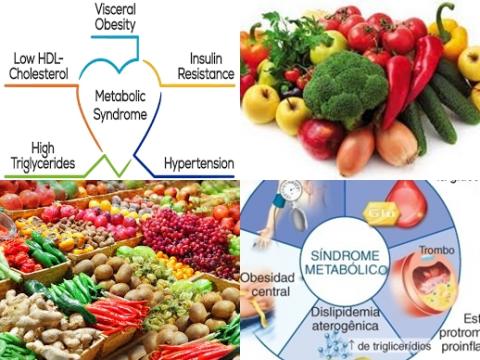
Objectives:
Does vegetable and/or fruit consumption reduce metabolic syndrome (MetS)?
Study design:
This review article included 20 cross-sectional studies, 1 case-control study and 5 cohort studies.
Results and conclusions:
The investigators found in 16 studies when comparing the highest versus the lowest category of vegetable consumption a significantly reduced risk of 11% [overall multivariable-adjusted RR = 0.89, 95% CI = 0.85-0.93, p 0.001] for metabolic syndrome.
The investigators found in 16 studies when comparing the highest versus the lowest category of fruit consumption a significantly reduced risk of 19% [overall multivariable-adjusted RR = 0.81, 95% CI = 0.75-0.88, p 0.001] for metabolic syndrome.
The investigators found in 8 studies when comparing the highest versus the lowest category of vegetable and fruit consumption a significantly reduced risk of 25% [overall multivariable-adjusted RR = 0.75, 95% CI = 0.63-0.90, p = 0.002] for metabolic syndrome.
The investigators concluded that vegetable and/or fruit consumption is negatively associated with metabolic syndrome. However, more well-designed prospective cohort studies are needed to elaborate the concerned issues further.
Original title:
Associations of vegetable and fruit consumption with metabolic syndrome. A meta-analysis of observational studies by Zhang Y and Zhang DZ.
Link:
https://www.ncbi.nlm.nih.gov/pubmed/29506604
Additional information of El Mondo:
Find more information/studies on overweight and fruit and vegetable consumption right here.